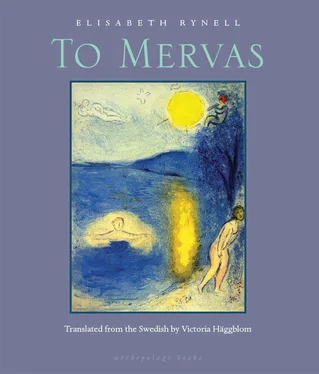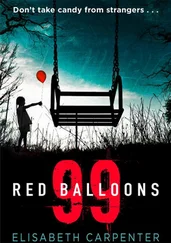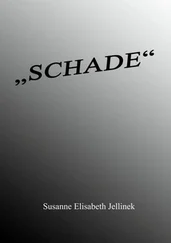It is quite easy to lie without being a liar. All you need is a slight imbalance. Or the wrong internal order. One little bump in the road can overturn your cart, as the saying goes. One small, insignificant imbalance somewhere in the story may one day topple over and grow into a different story. You don’t have be false to lie; I actually think you can make up events and still tell the truth. Lying isn’t so much about a lack of truth but rather a lack of meticulousness and devotion. It is not about disturbing the sensitive balancing act that truth represents, but rather recognizing this frail order and sensing it inside you, just as the tightrope walker senses every muscle and tendon in her body before she steps out on the rope.
Something I’ve been thinking about is that for long periods of time, I’ve been imagining that Kosti was dead. It’s been a small, hard, tugging notion inside me. He could actually be dead without my knowing it. It’s been frightening to think about this. Like walking around with someone dead inside you. Secretly harboring a dead body.
Other parts of me have tried to convince me that I’d know if he were dead. That something inside me would change. This change would be noticeable but very slight, like when a petal falls from a flower and floats to the ground. There’d be a difference.
But that first thought has still continued to tug at me, no matter how hard I’ve tried to push it out of my mind.
You wouldn’t notice his death, it tells me. His death would alter less inside you than a flower petal. Reality is prosaic, it has no connection to the hereafter, the thought insists triumphantly.
I realized it was one of those thoughts that are out to get you, that want to crush you, want to shrivel the world. But now I know. He exists. He called me from somewhere. Through my life, through the ruins among which I’ve been moving, he called me. And that thought tugs at me harder than any other. It’s a thought that could turn the world on its head.
My dad had one passion. He wanted to populate the world with his offspring. At the very least, he wanted as many children as it’s possible to conceive in a monogamous marriage. The way he saw it, it was Mom’s duty to assist him in this mission. She was meant to give birth to all of his children. That was the sole reason for her existence.
After Mom’s third pregnancy, from which came twins, the doctors warned her that another pregnancy would put her health at serious risk and suggested sterilization. When Dad heard this, he became so enraged that he pressed a knife against her throat and said he would kill both her and us kids if she went through with the procedure. She was soon pregnant again.
Dad wanted to prove something with his big and healthy brood. It wasn’t simply to show that he was a virile and capable man. No, the main thing his offspring were supposed to prove by their quality and intelligence was something the world had so far neglected to acknowledge: that Dad was a genius.
But Mom’s fourth pregnancy became very complicated. She had to stay in the hospital for a month after the delivery. When she finally came home, Dad would spew his venom upon her at every turn.
“A woman who can’t bear strong and healthy children is utterly useless,” he declared at the kitchen table. “In the old days, women could give birth to twelve, fifteen children without suffering any damage. But the modern world has ruined motherhood. The sloppy lifestyle, the doctors’ coddling, the entire medical profession is false. Listen to me, modern women are spoiled. But I’ll tell you this, she can do it if she wants to!”
The color rose on his cheeks in a frightening way as he spoke, or rather, lectured. My dad didn’t speak, he lectured.
“Women who give birth,” he proclaimed, and gestured theatrically. “Women who give birth! There are no words, I repeat, no words as grand and beautiful as these!”
At first, he lowered his voice when he continued speaking.
“But modern women don’t want to give birth. They think it hurts too much. Ouch, ouch, it hurts! They can no longer stand pain. Can’t stand the pain that has sanctified women for thousands of years. Do you understand? Do you understand what I’m saying, children? Do you understand how important this is for me, for you, for the future? I want you to understand what I mean when I tell you that your mother is useless. She’s a useless woman because out of some kind of stubbornness, she refuses to bring children into this world. This makes her subhuman; genetically, she’s garbage! And this is my wife. Your mother.”
I don’t understand how Mother could stay quiet. How she could remain where she was sitting. But she did. When our eyes would meet, I would immediately avert mine. I was so terribly ashamed in front of her; I felt dirty and guilty and deceitful. And her gaze was somehow inquisitive. Do you believe what this man is saying? it seemed to ask.
Dad especially liked to lecture at the dinner table. The fact that his lectures often turned into loud, hateful rants of unbridled rage didn’t seem to have any effect on his appetite. He shoveled the food into his mouth between sentences, quickly and mechanically. The rest of us sat quietly trying to chew and swallow as best as we could while we carefully observed the characteristic and ill-boding quakes of anger that rippled through his thin body like an electric current.
But it wasn’t enough for Dad to hold forth alone in front of a gloomy, silent audience. He wanted both assent and participation. The dinner lectures were part of his educational mission to elevate Mom, and especially us kids, to his level.
“Can you understand this, Marta, that your mother, your own mother sitting there chewing her tough beef stew like a cow chews its cud, do you understand that genetically, she’s garbage? Do you grasp the meaning of these words, Marta?”
He always had to turn to me. In his eyes, I was Daddy’s girl, and also more gifted than my older sister. He was speaking in a very low voice and his lips were thin and taut like rubber bands. When he lowered his light blue gaze into my wide-open eyes and fixed it there, lashed it there, I hated him so much I wanted him to die. The hate burned inside me like a dry chemical fire.
“Yes, Daddy, I understand.”
“Well, then I’d like you to explain to me, and the rest of us, what it is you claim to understand. For example, what does the word genetic mean?”
The word “genetic” sounded like the crack of a whip when he said it. I could sense the vibration of the word inside him; it seemed to fill the whole kitchen. If he’d had whiskers, they would have vibrated like those of a cat spotting a small bird.
“Well, Marta. Genetic? ”
The way he said “well” was forceful like a vise, and I often felt that I could kill him for the way he said it. It was also in conjunction with the word “well” that the rug beater would be brought out and used in explosions of uncontrolled rage. The word “well” was a dam that at any moment could burst from the water pressing against its walls.
“It has. . it has to do with inheritance,” I said. “It means hereditary, it’s hereditary.”
Animal breeding was one of Dad’s special interests. He worked at the Department of Agriculture and specialized in hog breeding. Sometimes, to the relief of the entire family, he had to travel to different parts of the country to inspect selected groups of breeding hogs. It was on one of these occasions that Mom packed up some linens, clothes, some pots and pans, and toys in big boxes. Then an uncle we’d never met before came over and put Mom, the boxes, and us into a Volvo station wagon and took us away. That’s how we ended up in the two-room apartment, which Dad later started calling the Exception.
Читать дальше












